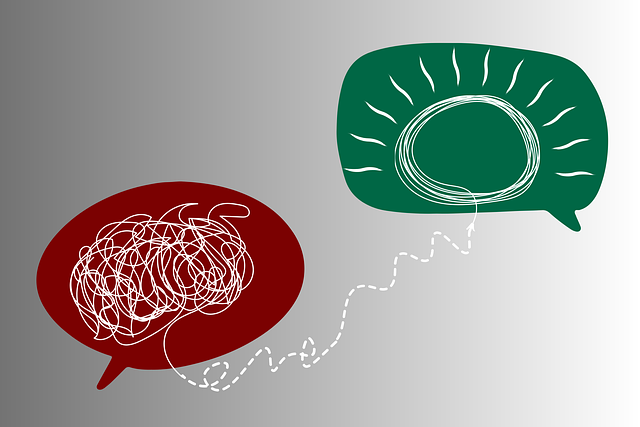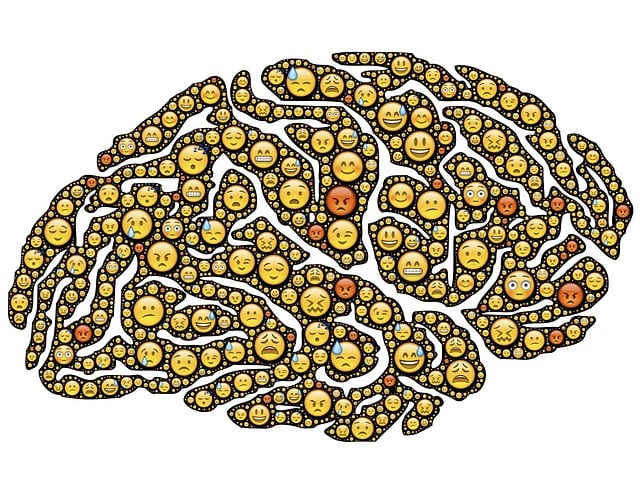New motherhood often brings increased stress that, if unaddressed, can escalate into conditions like Denver postpartum depression (PPD), impacting a mother's ability to care for herself and her baby. Effective strategies include mental wellness journaling, stress reduction methods, mindfulness meditation, and compassion cultivation. Denver PPD therapy integrates these evidence-based practices to help mothers manage stress, process trauma, develop self-compassion, and cultivate resilience. Additionally, integrating Mental Illness Stigma Reduction Efforts into education fosters safe spaces for support-seeking. Adopting sustainable practices like mindfulness exercises can regulate stress responses and improve mental well-being, with small consistent changes leading to better equanimity in navigating life's challenges.
Stress management techniques are crucial, especially for new mothers navigating the challenges of motherhood. This article explores effective strategies to combat stress and anxiety, focusing on the role of Denver Postpartum Depression Therapy as a game-changer in maternal mental health. We’ll delve into understanding stress, its impact, and provide practical tips for teaching and integrating stress management skills into daily routines. By utilizing techniques like mindfulness and relaxation, new mothers can find respite and enhance their overall well-being.
- Understanding Stress and Its Impact on New Mothers
- The Role of Denver Postpartum Depression Therapy in Stress Management
- Effective Techniques for Teaching Stress Management Skills
- Tips for Integrating Stress Management into Daily Routines
Understanding Stress and Its Impact on New Mothers

New motherhood is a transformative period filled with joy, love, and profound changes. However, it’s also common for women to experience heightened stress levels due to the significant physical and emotional adjustments associated with pregnancy and childbirth. This can manifest in various ways, from exhaustion and anxiety to feelings of being overwhelmed and isolated. Understanding these stressors and their impact is crucial for promoting mental wellness during this critical time.
Stress, when left unaddressed, can escalate into conditions like Denver postpartum depression, affecting a mother’s ability to care for herself and her baby. Mental wellness journaling exercises, coupled with guidance on stress reduction methods, have proven effective in managing these challenges. Encouraging new mothers to document their thoughts and emotions can serve as a valuable tool for self-awareness and coping. Moreover, integrating mental health policy analysis and advocacy into support systems can ensure accessible resources for those facing postpartum struggles, fostering a culture of care and resilience.
The Role of Denver Postpartum Depression Therapy in Stress Management

Denver Postpartum Depression Therapy plays a pivotal role in equipping individuals with effective stress management techniques, particularly for new mothers facing the unique challenges of postpartum life. This specialized therapy goes beyond addressing depression symptoms; it empowers women to navigate the physical and emotional demands of motherhood while cultivating resilience. Through evidence-based practices, such as Mindfulness Meditation and Compassion Cultivation, Denver Postpartum Depression Therapy offers a safe space for new mothers to process their experiences, manage overwhelming feelings, and reconnect with themselves.
By incorporating Trauma Support Services into its framework, this type of therapy recognizes that many postpartum struggles stem from underlying trauma or past experiences. Through compassionate guidance, women learn to recognize and challenge unhelpful thought patterns, fostering a sense of safety and self-compassion. These practices not only enhance overall well-being but also equip mothers with the tools needed to effectively manage stress, ensuring they can fully embrace and enjoy the rewarding journey of parenthood.
Effective Techniques for Teaching Stress Management Skills

Teaching stress management skills effectively involves a combination of practical strategies and supportive environments. One powerful technique is incorporating mindfulness practices such as meditation and deep breathing exercises, which have been shown to reduce symptoms of anxiety and depression, including those experienced by individuals in Denver Postpartum Depression Therapy. These techniques empower individuals to cultivate present-moment awareness and regulate their emotional responses to stressful situations.
Additionally, integrating Mental Illness Stigma Reduction Efforts into the teaching curriculum can foster a safe and inclusive learning environment. By promoting Mental Health Awareness, educators can encourage open discussions about stress management challenges and normalize seeking support. This approach aligns with best practices in risk assessment for mental health professionals, ensuring that students develop both theoretical knowledge and empathy towards individuals grappling with various forms of mental illness.
Tips for Integrating Stress Management into Daily Routines

Integrating stress management into daily routines is a crucial step towards enhancing mental well-being, especially for individuals navigating postpartum depression in Denver. It’s not just about finding moments of tranquility; it’s about adopting sustainable practices that become second nature. Start by incorporating mindfulness exercises like deep breathing or meditation into your morning routine to set a calm tone for the day ahead. Even short periods of stillness can help regulate stress responses and improve focus.
Additionally, designing mental health education programs around self-esteem improvement techniques can be empowering. Engaging in activities that challenge negative thought patterns and promote positive affirmations can significantly impact one’s resilience to stress. The Mind Over Matter principles, when applied consistently, offer a framework for navigating life’s challenges with greater equanimity. Remember, small, consistent changes in your daily routine can lead to substantial improvements in managing stress and overall mental health, as supported by various Denver postpartum depression therapy programs.
Stress management techniques are invaluable tools for new mothers, especially those navigating the challenges of postpartum depression. The Denver Postpartum Depression Therapy approach offers a structured path to healing and resilience. By combining evidence-based practices with practical tips on integrating stress management into daily life, this comprehensive guide empowers women to thrive post-pregnancy. Effective teaching methods and personalized strategies ensure that each mother can find her own rhythm and cultivate mental well-being.








